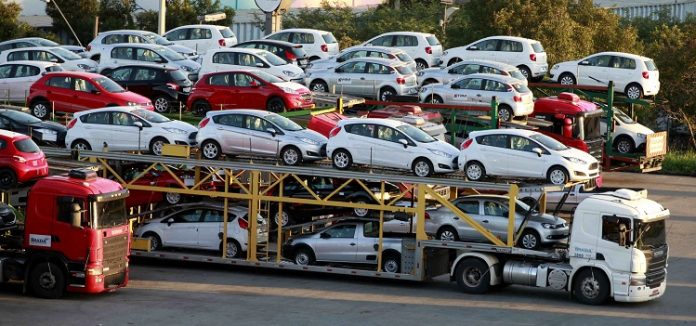Vehicle importers are staring at bleak times ahead if President Uhuru Kenyatta’s remarks are anything to go by. President Kenyatta affirmed his commitment to safeguarding local car assemblers against unfair competition and ensure a conducive environment for their businesses, adding that a new policy is expected in the next three weeks to restrict vehicle imports.
He urged Industry, Trade and Cooperatives Cabinet Secretary Peter Munya to speed up the National Automotive Policy and promised to submit it to the Cabinet for approval within three weeks.
Unhappy Importers
“Cars that are used and assembled in Kenya have grown by 36%,” Mr Munya said. “We will see more growth as we go on to implement policies that support the car assembly industry.”
Kenya spends Sh22 billion a year on used-car imports, he said, adding that the vehicles incur high costs in maintenance and export jobs.
“We want Kenyan taxes to be used to buy goods made in Kenya,” he said. “Even if they want to go to court to oppose the government’s stand, we are clear on our agenda to ensure all those who invest in the country get value for their money.”
He was speaking when he commissioned the Sh1 billion Toyota Hilux pickup truck assembly line at Associated Vehicle Assemblers (AVA) in Miritini, Mombasa.
Good Competition
Despite the President’s tough talk, the Car Importers Association of Kenya (Ciak) has opposed the move, saying the car-importing business is an economic mainstay for over 2.5 million people. Ciak wants the government to set up policies to protect the entire automotive industry.
“As a country, we should not cheat ourselves when it comes to manufacturing and assembling,” said Ciak chairman Peter Otieno. “The person doing assembling of motor vehicles is not a manufacturer; this is just an assembler, meaning that the parts are made somewhere else and even the painting has been done.”
“So they come in parts for fixing to become a vehicle, that is not manufacturing but mere assembling, which hires very few people,” he added, accusing assemblers of banking on tax-free incentives to make a profit.
“The government should instead bring it up clearly that this is competition,” he said. “If they are going to assemble vehicles at better rates, then people will opt for them, we don’t feel any threat.” Let us do our business and let assemblers do theirs, this is good competition and it should be left open.”
“Let people not be coerced to buy locally assembled vehicles; let the willing buyer, willing seller rule take its course,” he said, adding that the government should not impose any conditions on the industry. Mr Otieno challenged assemblers to reveal where they source local content.
Local Assemblers
“Who are supplying them with nuts, brake pads, springs, locks, mats and such like things?” he asked. “Everything used in those motor vehicles must support local industries by using local content. Second-hand vehicles create jobs in local garages and incomes which are taxed by the government, we are not doing an illegal business, let us do healthy competition.”
Data shows that Kenya imports about 7,600 second-hand vehicles per month while locally assembled units stand at 430.
Mr Otieno said Ciak imports between 120,000 and 130,000 vehicles per year.
Toyota Kenya chairman Dennis Awori said the popularity of Hilux pickup led to the setting up of a local assembly line.
“The pickup is affordable, especially for start-ups, and can be used for both personal commuting and commercial purposes,” he said.
Toyota Kenya assembles 300 Hino trucks, 500 Land Cruiser pickups and 3,000 Yamaha motorcycles annually. Kenya has three assembly plants: AVA in Mombasa, KVM in Thika, and Isuzu EA in Nairobi. They assemble well over 12 brands and 50 models of vehicles.




